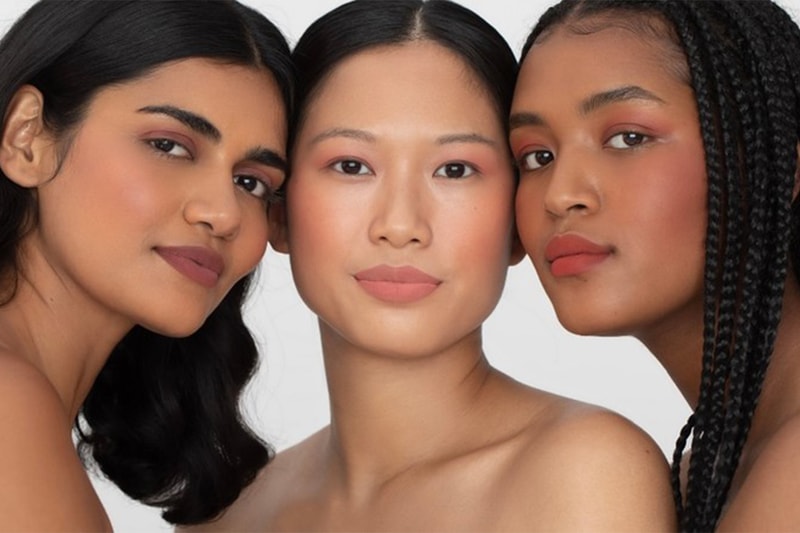AI Can Do Everything, but Does It Really Work For Skincare Treatments?
info@hypebae.com (Hypebae) Thu, 28 Nov 2024 Hypebae
If artificial intelligence has moved its way into everything else we do, how could it not enter the world of skincare? One of the most significant beauty advancements in recent years is not only innovative ingredients, but new AI tools that are designed to analyze skin conditions with incredible precision. But how does this new technology stack up against traditional methods used by dermatologists and estheticians? And more importantly, how do professionals interpret and incorporate these results into real-world treatment plans for acne, aging and all of the other skin conditions we deal with as humans?
We spoke to four experts in the skincare industry to learn more about their experience with AI, its benefits, its limitations and whether or not they prefer it over traditional methods of skincare analysis.
Keep reading to learn more.
What Is AI Skin Analysis?
AI skin analysis usually consists of utilizing a cutting-edge tool that combines high-tech imaging with advanced algorithms to assess a person's skin health. By capturing detailed images of the skin, AI-powered tools like Haut.AI and others can quickly detect issues such as wrinkles, pigmentation, sun damage and even early signs of skin cancer. These systems provide a thorough, analytical review of skin conditions, offering personalized treatment suggestions based on data.
For example, Haut.AI's analysis process begins with high-quality image capture, where a camera system ensures optimal lighting and framing for clinical-grade selfies. Once the image is captured, the AI evaluates 15 skin health metrics, including hydration, wrinkles, pigmentation and redness. The result is a visual report, with scores and detailed explanations, allowing users to see exactly where their skin may need attention. Eric Nietzel, RN and aesthetic nurse, explains that, "after an analysis, we can determine a patient's skin type, which can dictate which treatments are safe or appropriate for the patient. An overview of wrinkles and skin irregularities can help us understand what treatments patients may need to help reduce any premature aging or skin damage."
"As a professional, I use these results as a starting point. They offer a comprehensive snapshot of the skin's health, which I then contextualize based on the client's medical history, lifestyle and my in-person examination," says Dr. Sheila Malek Kassir, co-founder of Kassir Plastic Surgery and Inside Beauty Spa.
What are the Traditional Methods of Skincare Analysis?
In contrast to AI, traditional skincare analysis relies on the expertise of dermatologists and estheticians who visually examine the skin, often using manual tests to assess skin health. These professionals rely on years of training and hands-on experience to make personalized judgments about a client's skin type, concerns and potential treatments. While traditional methods allow practitioners to touch and feel the skin, noting texture, elasticity and other subtle cues, the results are subjective and can vary from one professional to another. This approach requires a deep understanding of the skin's anatomy, as well as well as the ability to understand a patient's unique concerns.
How AI Improves Treatment Planning
AI has proven to be a powerful tool for enhancing the treatment process by providing professionals with more objective data. For example, AI can identify early signs of dehydration, pigmentation issues or even sun damage under the skin's surface — concerns that might be missed during a visual examination. This level of insight allows providers to tailor treatments with greater precision, creating more effective, personalized skincare plans.
Neitzel shares an example: "Using an AI skin analysis tool, I've detected volume loss in areas of the face that I might have missed with just my eyes. This allowed me to treat those specific areas, achieving a more natural and balanced look for the patient." Khayutin also had a similar situation happen with a patient. "I had someone with seemingly clear skin who wasn't happy with her texture. The AI picked up on early dehydration and some underlying sun damage, which helped me create a treatment plan to tackle those concerns before they worsened." For Dr. Kassir, this was also the case. "One of my patients came in concerned about uneven skin tone. While this was visible on the surface, the AI analysis revealed deeper UV damage that wasn’t immediately apparent. This allowed us to address not just the pigmentation but also implement preventive measures to mitigate further sun damage." In short, without using AI analysis, the underlying issue might not have been detected.
The Limitations of AI in Skincare
Despite the impressive capabilities of AI, it does have its limitations. First, AI tools rely on high-quality data and images to deliver accurate results. Sometimes, subtle skin issues may not be captured effectively if the lighting or image quality is poor. Furthermore, AI cannot consider factors like a patient's medical history, lifestyle or emotional well-being — elements that are crucial in creating a truly personalized skincare treatment. AI can also sometimes misinterpret certain skin characteristics. For example, freckles may be flagged as sun damage, even though a patient might not be concerned about them.
This is where professional judgment comes in. Skincare professionals need to incorporate their knowledge and expertise to ensure that the AI's suggestions align with the patient's personal preferences and aesthetic goals. Khayutin states, "AI can be an amazing tool for objective data, but I always combine those findings with what I know about the client. That way, I can ensure that we're addressing the right concerns without overreacting to minor issues."
Anastasia Georgievskaya, the CEO and Co-founder of Haut.AI, acknowledges these limitations but still acknowledges AI's importance. "We believe the combination of new technology and traditional methods is the best approach for achieving optimal skincare outcomes. Dermatologists, for example, should not view AI as a threat but rather as a powerful tool that complements their expertise. Our technology can streamline workflows by handling preliminary skin analysis, reducing the time spent on routine evaluations. This allows dermatologists to focus more on complex cases and provide informed, personalized consultations to a greater number of patients."
Combining AI and Traditional Methods
So, which method works better — AI or traditional approaches? According to professionals like Neitzel and Georgievskaya, the answer lies in the integration of both. AI provides an extra layer of insight and helps uncover skin issues that might be overlooked with traditional methods. Human expertise is still important for interpreting results in the context of a patient's unique needs and preferences. Neitzel echoes this sentiment, saying, "AI is an amazing tool that, when combined with traditional methods, can enhance our ability to provide safer, more effective treatments. It's about using both — AI for its precision and data-driven insights and traditional methods for a holistic, personalized approach."
Georgievskaya believes that "AI should complement the expertise of dermatologists and estheticians, not replace it. By integrating AI into the treatment process, we can streamline assessments and focus more on personalized care for each patient." Dr. Kassir also agrees, stating that "traditional methods provide a level of nuance and insight that technology alone can't replicate." For her, AI skin analysis adds a layer of precision and consistency that supports her decision-making. "It's not about choosing one over the other but about integrating technology with expertise to achieve the most accurate diagnoses and effective outcomes for patients."
The Future of AI in Skincare
As AI technology continues to evolve, it will most likely play an important role in skincare analysis. However, the human touch will still remain essential in delivering the most effective, personalized care. The future of skincare lies in the integration of technology and human expertise — where AI provides the data and professionals bring the knowledge and skill to craft the perfect treatment plan. While AI may not be a full replacement for traditional methods, it is a tool that will continue to augment and enhance the services provided by professionals.
For more beauty explainers, check out our investigation into whether or not pheromone perfumes work.






